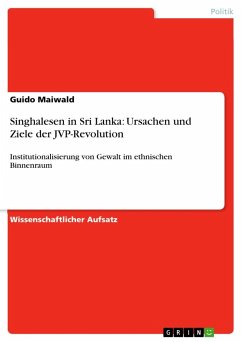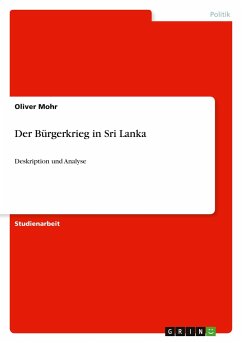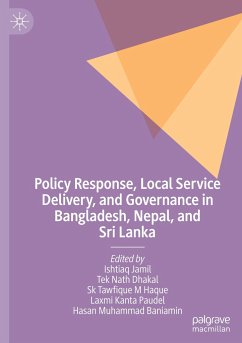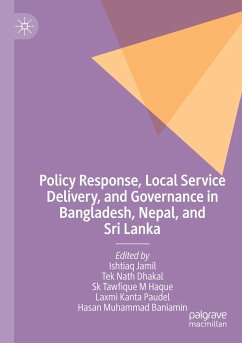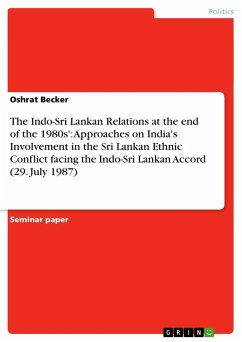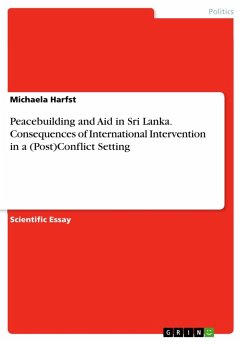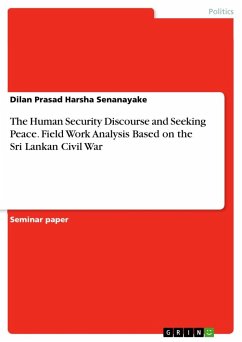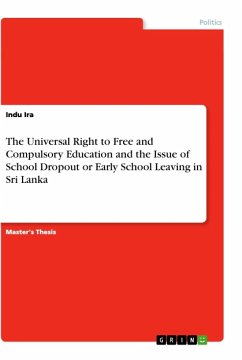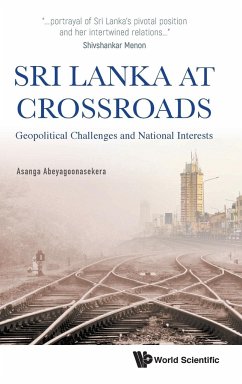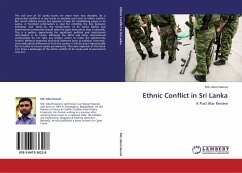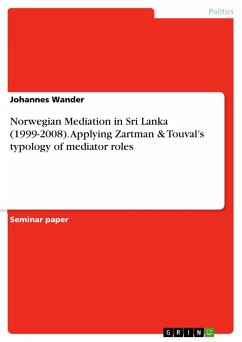
Norwegian Mediation in Sri Lanka (1999-2008). Applying Zartman & Touval's typology of mediator roles

PAYBACK Punkte
0 °P sammeln!
Seminar paper from the year 2015 in the subject Politics - Topic: Peace and Conflict, Security, grade: 1, Uppsala University (Department of Peace and Conflict Research), course: International Negotiations, language: English, abstract: This paper aims on applying Zartman & Touval's (1985) typology of mediator roles on the Norwegian mediation attempt in Sri Lanka between 1999 and 2008. Its purpose is to test if the concept helps understanding the case and the negotiation outcome. The case of Sri Lanka was selected because it offers various insights for international negotiation scholars due to i...
Seminar paper from the year 2015 in the subject Politics - Topic: Peace and Conflict, Security, grade: 1, Uppsala University (Department of Peace and Conflict Research), course: International Negotiations, language: English, abstract: This paper aims on applying Zartman & Touval's (1985) typology of mediator roles on the Norwegian mediation attempt in Sri Lanka between 1999 and 2008. Its purpose is to test if the concept helps understanding the case and the negotiation outcome. The case of Sri Lanka was selected because it offers various insights for international negotiation scholars due to its long duration and strong intensity, involving different mediators, and various conflict resolution attempts, which mostly failed. I focus on the timeframe between 1999 and 2008 as this reflects the time of the official Norwegian engagement as a mediator in Sri Lanka. In this paper, I will first briefly introduce the concept of mediator roles by Zartman & Touval. Following, I conceptualizethe approach into a research design applied in this paper. The chapter on analysing the case is divided in a mere descriptive part of the Norwegian mediation activities in Sri Lanka and an analytical part where the role of the mediator is identified and discussed. In the final conclusions I will summarize the insights and discuss their relevance for the Sri Lankan case.




